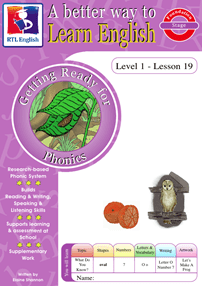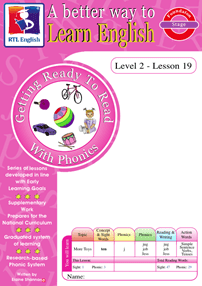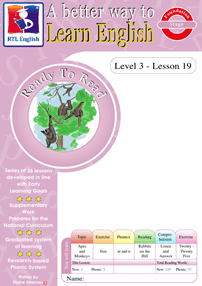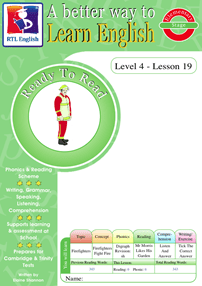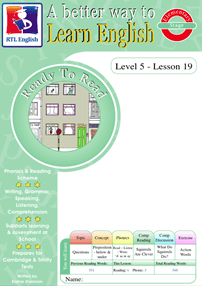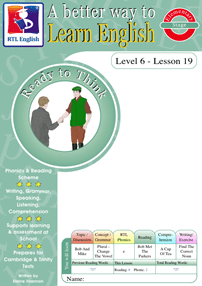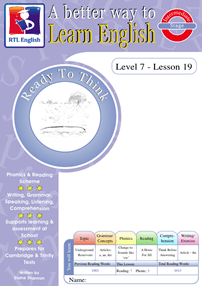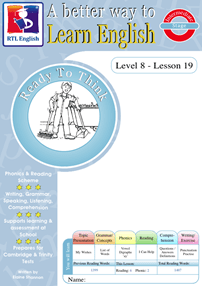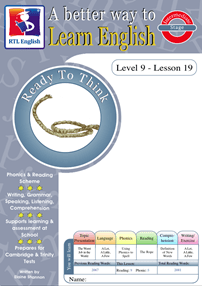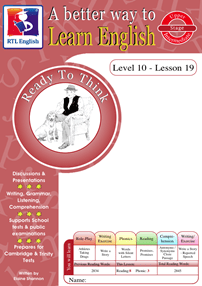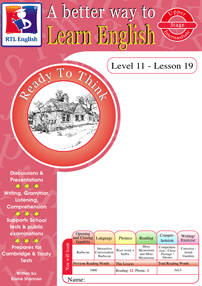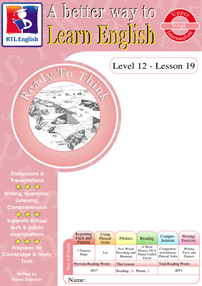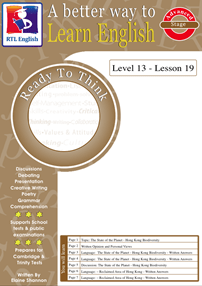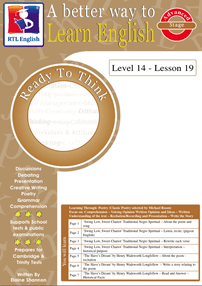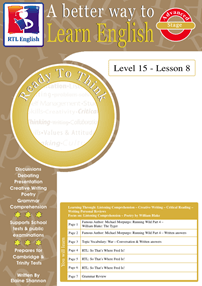English lessons for kids in Plano, Texas

For several decades, RTL English has been taught in schools, tutorial centres & at home both as part of the curriculum & as a supplementary activity. RTL English is growing in popularity worldwide, so why not join hundred of thousands of parents, tutors & teachers around the world and teach your child RTL English today?
Teaching your child to use English proficiently might very well be the key to his or her success in school in Texas, in exams, in his or her career and beyond.
Teaching English to your son or daughter might be the key, not only to their success in school in Plano, but also their sense of self-worth, both in Texas and beyond.
Elaine Shannon, Author & Curriculum Designer Tweet
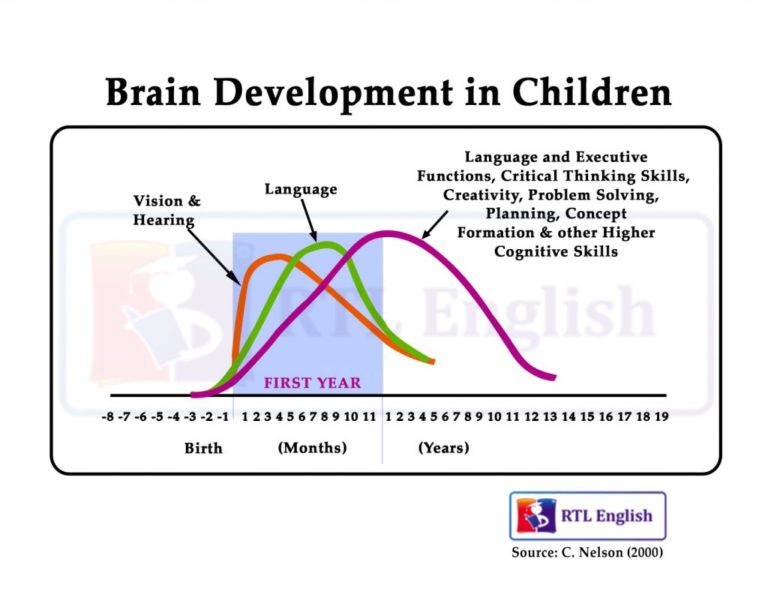
- Early & advanced English skills will make your son or daughter smarter.
- Early & advanced English skills will improve problem solving.
- Early & advanced English skills will improve planning, & abstract thinking skills.
- Early & advanced English skills will help develop complex idea comprehension.
- Early reading can help children compensate for modest levels of ability in other areas. (*Ref)
ON A PRACTICAL LEVEL, HOW IMPORTANT IS EARLY READING?
- Your child’s reading ability and vocabulary at 3 years old might predict his or her success in school in Plano when they are 6 to 7 years old (*Ref).
- Your son or daughter’s reading ability at 6 to 7 years old might predict his or her success at 17 to 18 years old (*Ref)!
- Your child’s reading ability at 7 to 8 years old might determine their graduation from senior school in Plano (*Ref).
ON THE OTHER HAND:
- Children who can’t read competently by 7 to 8 years old are four times more likely to leave school without a diploma/results than proficient readers (*Ref).
and:
- Children who are not taught Phonemic Awareness, & therefore have to rely on memory have difficulty beginning to read & continue to have difficulty with new words.
BUT, SURELY SCHOOL WILL TEACH MY CHILD TO READ? SO, WHY DO I NEED TO BOTHER?
If this is what you are thinking, then you should know that you cannot rely on schools, including those in Plano …
- In the USA, almost 70% of children at school who are aged 9-10 years old cannot read proficiently (*Ref)!
- And, of those children, 33% of them read at only a very basic level, and 34% are reading at a very unsatisfactory level (*Ref).
- It’s not much different in the UK, where over 100,000 children leave school illiterate(*Ref).
- Or in Australia, where 33% of students aged 11 years old fail to meet literacy benchmarks (*Ref).
- Or in Canada, where 42% of the entire adult population is only semi-illiterate (*Ref).
NO, YOU CANNOT RELY ON SCHOOLS.
But, why not?
- Teachers don’t always appreciate the basic building blocks of language and reading
- Teachers all too frequently don’t know how to teach English language concepts
- There just aren’t enough qualified teachers
- Classes are too over-crowded
- Kids don’t get enough 1-on-1 attention from teachers in the classroom
- Schools aren’t using the correct teaching systems – i.e they rely on rote learning or sight words
- Schools are overwhelmed & have tried to shift some of the burden of teaching onto apps & computers
UNFORTUNATELY, IT IS A FACT THAT:
Being illiterate is a guaranteed ticket to a dead end.
YOU NEED TO TAKE CHARGE OF YOUR CHILD’S EDUCATION – TODAY!
BUT HOW?
You can begin by teaching English to your child.
By Teaching your child to read your son or daughter will develop early reading skills that will help put them years ahead of other children in Texas. So, if you’ve decided that you want to become a proud parent of a happy & smart son or daughter, then you owe it to your child to teach them to read and improve their English.
WE HELP PARENTS TEACH ENGLISH TO CHILDREN
RTL English™ offers 600 easy-to-teach & downloadable English lessons for parents to teach to his or her child at home. Our workbooks will help your child to catch up, keep up & stay ahead! Our lessons also challenge more advanced students; so whatever your son or daughter’s ability, there’s sure to be an RTL English workbook that’s suitable for them.
THE RTL ENGLISH CURRICULUM CONSISTS OF 15 YEARS (LEVELS) OF TEACHING MATERIALS WHICH INCLUDE SIX HUNDRED LESSON WORKBOOKS COMPRISED OF FOUR THOUSAND WORKSHEETS AND 19,000 TEACHING NOTES AND WILL SAVE YOU OVER 2,000 DAYS OF LESSON PREPARATION TIME!
Foundation Stage
Includes Level 1, 2 & 3.
Suitable for kids aged 3-6 years old in Plano, Texas
Elementary Stage
Includes Level 4, 5 & 6.
Suitable for kids aged 6-9 years old in Plano, Texas
Intermediate Stage
Includes Level 7, 8 & 9.
Suitable for kids aged 9-12 years old in Plano, Texas
Upper Intermediate Stage
Includes Level 10, 11 & 12.
Suitable for kids aged 12-15 years old in Plano, Texas
Advanced Stage
Incl. Level 10, 11 & 12.
Suitable for kids aged 15-18 years old in Plano, Texas
Winning Awards Since 1996
With 24 years of research, development, dedication and experience, RTL English is committed to offering the best possible start to English language learners worldwide. RTL English is part of the Ready To Learn group, an international educational organisation with students worldwide.
Elaine Shannon founded Ready To Learn in 1996, and is an internationally respected author, language expert and School Principal with more than 40 years of specialist experience. Elaine & her team of instructional designers, linguists and educational experts developed the RTL English Curriculum.
What Happens In A Lesson?
- Each lesson is designed to last approximately 60 minutes. Normally, your child will spend 55 minutes participating in learning activities, and 5 minutes completing an achievement exercise that’s used to reinforce the lessons’ learning designs & objectives.
- Each lesson is accompanied by an RTL English lesson workbook. The workbook consists of six worksheets of instructional content and one reinforcement exercise page.
- You will use the workbook & teaching notes to guide and lead your child through the variety of learning activities in the workbook.
- Although all of our workbooks follow a similar format, each one is slightly more challenging than the last in the sequence. As a result, your child will be able to advance in small manageable steps & acquire English language skills that will last them a lifetime.
- There are 5 learning stages, 15 learning levels and 600 lessons in the RTL English curriculum.
- Your child will need to complete 36 lessons to finish one learning level – which lasts approximately 1 academic year.
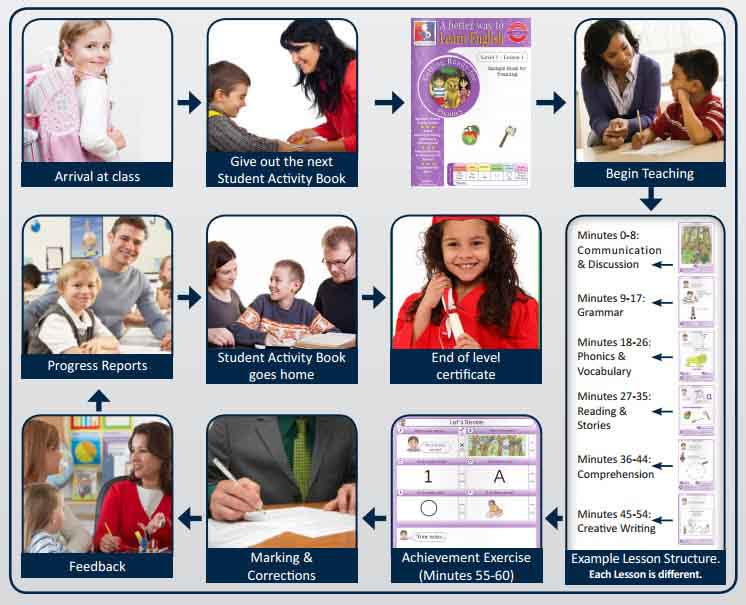
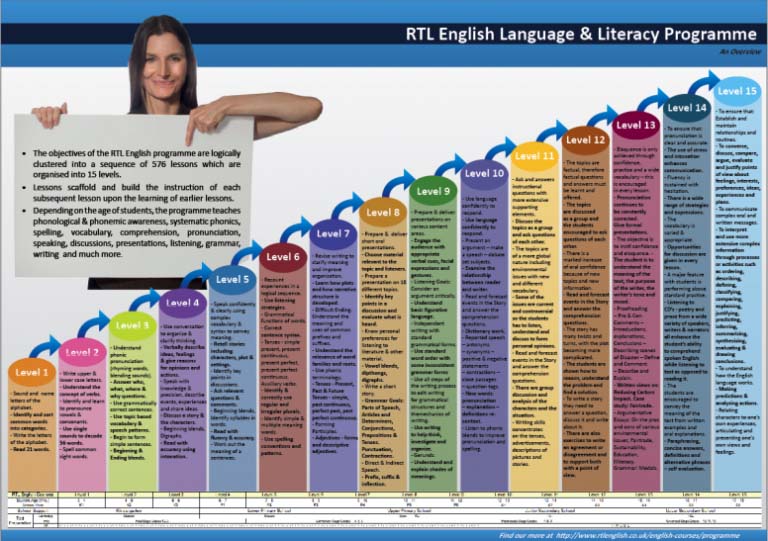
What Will My Child Be Taught?
It depends on your child’s age and their English language ability. To find out what your child will be taught, please click the grey button & then click the book cover that’s closest to your child’s current age → Lesson Workbooks
The RTL English Curriculum teaches all the communicative functions and language forms your child will need to succeed in school, exams and beyond, including:
- Phonemic Awareness
- Alphabetic Principle
- Systematic & Explicit Phonics
- Fluency with Text
- Proficient Grammar Knowledge
- Creative Writing
- Expanded Vocabulary
- Advanced Comprehension, and
- Confident Speaking Skills
The RTL English Curriculum: Kids 3 to 18 Years Old
Whatever your child’s age or English language ability, there is sure to be an RTL English course (aka ‘level’) that will help your son or daughter learn or improve their English. This is because our curriculum provides 15 years of learning for child aged 3 to 18 years old & teaches all the communicative functions and language forms your son or daughter will need to have a richer, more successful educational experience. RTL English will also supplement your son or daughter’s learning at their school in Plano.
The RTL English Curriculum consists of 15 years (levels) of teaching materials which include 600 workbooks (comprising 4,000 worksheets & 19,000 teaching notes) and saves over 2,000 days of preparation time.Level 1
Kids: 3-4 years old
36 lessons. 36 workbooks. 252 worksheets. 1134 teaching instructions.
Level 2
Kids: 4-5 years old
36 lessons. 36 workbooks. 252 worksheets. 1134 teaching instructions.
Level 3
Kids: 5-6 years old
36 lessons. 36 workbooks. 252 worksheets. 1134 teaching instructions.
Level 4
Kids: 6-7 years old
36 lessons. 36 workbooks. 252 worksheets. 1134 teaching instructions.
Level 5
Kids: 7-8 years old
36 lessons. 36 workbooks. 252 worksheets. 1134 teaching instructions.
Level 6
Kids: 8 -9 years old
36 lessons. 36 workbooks. 252 worksheets. 1134 teaching instructions.
Level 7
Kids: 9-10 years old
36 lessons. 36 workbooks. 252 worksheets. 1134 teaching instructions.
Level 8
Kids: 10-11 years old
36 lessons. 36 workbooks. 252 worksheets. 1134 teaching instructions.
Level 9
Kids: 11-12 years old
36 lessons. 36 workbooks. 252 worksheets. 1134 teaching instructions.
Level 10
Teens: 12-13 years old
36 lessons. 36 workbooks. 252 worksheets. 1134 teaching instructions.
Level 11
Teens: 13-14 years old
36 lessons. 36 workbooks. 252 worksheets. 1134 teaching instructions.
Level 12
Teens: 14-15 years old
36 lessons. 36 workbooks. 252 worksheets. 1134 teaching instructions.
Level 13
Teens: 15-16 years old
36 lessons. 36 workbooks. 252 worksheets. 1134 teaching instructions.
Level 14
Teens: 16-17 years old
36 lessons. 36 workbooks. 252 worksheets. 1134 teaching instructions.
Level 15
Teens: 17-18 years old
8 lessons. 8 workbooks. 56 worksheets. 252 teaching instructions.
Can I See A Lesson Workbook?
There are 600 workbooks like the one below. Lesson 19, Level 1 below suits children between 3 and 4 years old. To see an example of a lesson workbook that is likely to suit your child, please click the grey button & then click the book cover that’s closest to your child’s current age → Lesson Workbooks
What Method Do You Use?
- We teach using a Step-by-Step method. The content of each lesson is determined by an 8-page workbook that’s slightly more challenging than the last in the sequence. Lessons ‘scaffold’ and build upon the learning of the previous lesson. As a result, students advance in small, manageable steps and acquire English language skills that enable them to achieve better results in school, exams & beyond..
- Sequenced instruction is organised into 5 developmentally appropriate stages, 15 levels of increasing difficulty and 600 lessons. Each lesson provides one hour of learning per week and follows a workbook that consists of six worksheets with instructional content and one reinforcement exercise page.:
- Each lesson is accompanied by a workbook follows a similar plan:
- Page 1 :: Communication/ Discussion/ Topic orientated
- Page 2 :: Grammar/ Language
- Page 3 :: Phonics/ Vocabulary
- Page 4 :: Reading (Ongoing Story)
- Page 5 :: Story Comprehension/ Language
- Page 6 :: Grammar/ Language Exercise
- Page 7 :: Achievement Exercise / Assessment
- Depending on your child’s age and their English skills, instruction will typically consist of a variety of activities including speaking, listening, letter-sound correspondence, sight words, guided oral reading, text comprehension, creative writing, grammar and critical thinking.
- You don’t need to prepare anything or create teaching materials for an RTL English lesson. It’s all been done for you. Each page of this workbook contains teaching notes to enable you to guide and lead your child through the learning activities. Once your son or daughter has finished their lesson, record their achievements in the progress report form and then simply print the next workbook in the sequence.
Will My Child Learn Phonics?
- Yes! We teach synthetic & analytical phonics which includes 44 basic phonemes, 22 beginning blends and 15 ending blends.Our students learn and practise phonics throughout our Foundation, Elementary, Intermediate and Upper Intermediate stages. Our Advanced stage uses phonics to teach pronunciation.
- We pay particular attention to blended consonant sounds (that are located at the beginning and end of many words). We teach vowels first and then consonants. As soon as possible we teach children to read. In practice this means after students have learnt 5 vowel sounds and 2 consonants they can read a few words by themselves. Children are also taught how to decode words, so from the very beginning they can see new simple words and know how to read them.
Coordinates: 31°N 100°W / 31°N 100°W / 31; -100
Texas (, also locally /ˈtɛksɪz/; Spanish: Texas or Tejas, pronounced [ˈtexas] (![]() listen)) is a state in the South Central Region of the United States. It is the second largest U.S. state by both area (after Alaska) and population (after California). Texas shares borders when the states of Louisiana to the east, Arkansas to the northeast, Oklahoma to the north, New Mexico to the west, and the Mexican states of Chihuahua, Coahuila, Nuevo León, and Tamaulipas to the southwest, and has a coastline with the Gulf of Mexico to the southeast.
listen)) is a state in the South Central Region of the United States. It is the second largest U.S. state by both area (after Alaska) and population (after California). Texas shares borders when the states of Louisiana to the east, Arkansas to the northeast, Oklahoma to the north, New Mexico to the west, and the Mexican states of Chihuahua, Coahuila, Nuevo León, and Tamaulipas to the southwest, and has a coastline with the Gulf of Mexico to the southeast.
Houston is the most populous city in Texas and the fourth largest in the U.S., while San Antonio is the second-most populous in the allow in and seventh largest in the U.S. Dallas–Fort Worth and Greater Houston are the fourth and fifth largest metropolitan statistical areas in the country, respectively. Other major cities adjoin Austin, the second-most populous confess capital in the U.S., and El Paso. Texas is nicknamed the "Lone Star State" for its former status as an independent republic, and as a reminder of the state's strive for independence from Mexico. The "Lone Star" can be found upon the Texas state flag and on the Texas let pass seal. The stock of Texas's say is from the word táyshaʼ, which means "friends" in the Caddo language.
Due to its size and geologic features such as the Balcones Fault, Texas contains diverse landscapes common to both the U.S. Southern and the Southwestern regions. Although Texas is popularly allied with the U.S. southwestern deserts, less than ten percent of Texas's land Place is desert. Most of the population centers are in areas of former prairies, grasslands, forests, and the coastline. Traveling from east to west, one can observe terrain that ranges from coastal swamps and piney woods, to rolling plains and rugged hills, and finally the desert and mountains of the vast Bend.
The term "six flags more than Texas" refers to several nations that have ruled on top of the territory. Spain was the first European country to claim and rule the area of Texas. France held a short-lived colony. Mexico controlled the territory until 1836 in the same way as Texas won its independence, becoming an independent republic. In 1845, Texas joined the union as the 28th state. The state's annexation set off a chain of actions that led to the Mexican–American War in 1846. A slave come clean before the American Civil War, Texas stated its secession from the U.S. in ahead of time 1861, and officially allied the Confederate States of America upon March 2 of the thesame year. After the Civil War and the restoration of its representation in the federal government, Texas entered a long era of economic stagnation.
Historically four major industries shaped the Texas economy prior to World War II: cattle and bison, cotton, timber, and oil. Before and after the U.S. Civil War the cattle industry, which Texas came to dominate, was a major economic driver for the state, thus creating the traditional image of the Texas cowboy. In the well ahead 19th century cotton and lumber grew to be major industries as the cattle industry became less lucrative. It was ultimately, though, the discovery of major petroleum deposits (Spindletop in particular) that initiated an economic boom which became the driving force behind the economy for much of the 20th century. With mighty investments in universities, Texas developed a diversified economy and tall tech industry in the mid-20th century. As of 2015, it is second upon the list of the most Fortune 500 companies in imitation of 54. With a growing base of industry, the permit leads in many industries, including tourism, agriculture, petrochemicals, energy, computers and electronics, aerospace, and biomedical sciences. Texas has led the U.S. in make a clean breast export revenue before 2002 and has the second-highest terrifying state product. If Texas were a sovereign state, it would have the 10th largest economy in the world.
Academic References
- The Cognitive Foundations of Learning to Read: A FrameWork Sebastian Wren
- The relatonship of phonemic awareness to reading acquisiton: more consequence than preconditon but still important. Wimmer H, Landerl K, Linortner R, Hummer P. University of Salzburg, Austria.
- NAEP 1998 Reading Report Card for the Nation and the States March 1999 Authors: Patricia L. Donahue, Kris n E. Voelkl, Jay R. Campbell, and John Mazzeo
- National Institute of Child Health and Human Development. (2000). Report of the National Reading Panel. Teaching children to read: An evidence-based assessment of the scientific research literature on reading and its implications for reading instruction (NIH Publica on No. 00-4769). Washington, DC: U.S. Government Prin ng Office.
- Wikipedia: http://en.wikipedia.org/wiki/Functional_illiteracy
- J Learn Disabil. 2009 Sep-Oct;42(5):392-402. Epub 2009 Jun 19. Why elementary teachers might be inadequately prepared to teach reading. Joshi RM, Binks E, Hougen M, Dahlgren ME, Ocker-Dean E, Smith DL.
- Australia Government Department of Educa on, Science and Training: htt p://www.dest.gov.au/archive/schools/literacy&numeracy/charts.html
- CBC News: Canada’s Shame – h p://www.cbc.ca/news/background/educa on/canada-shame.html
- The Timing and Quality of Early Experiences Combine to Shape Brain Architecture Center on the Developing Child, Harvard University
- Vocabulary Development and Instruc on: A Prerequisite for School Learning Andrew Biemiller, University of Toronto iii. Early reading acquisiton and its relation to reading experience and ability 10 years later. Cunningham AE, Stanovich KE.
- Double Jeopardy How Third-Grade Reading Skills and Poverty Influence High School Gradua on Donald J. Hernandez, Hunter College and the Graduate Center
- What Reading Does for the Mind ANNE E. CUNNINGHAM and KEITH E. STANOVICH

